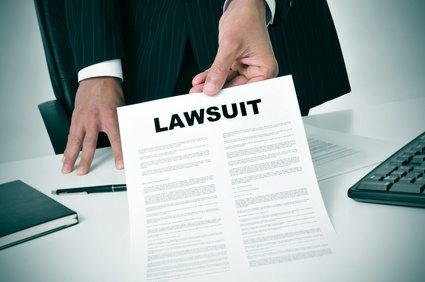The Fair Credit Reporting Act (FCRA), the Fair Debt Collections Practices Act (FDCPA), and a variety of other consumer protection statues give you the right to sue your creditors, third party debt collectors, and even the credit reporting agencies if you believe that someone has violated your rights under these Federal laws.
Thousands of credit related lawsuits are filed every year. In fact, as of September of 2015 30% more FCRA lawsuits had been compared with to the same time frame of the previous year.
Some of these credit related lawsuits arise from legitimate complaints, but many others are nothing more than simple shakedowns. Either way, here are three of the most common claims occurring in FCRA and FDCPA related lawsuits:
1. Illegal Debt Collection Claims
The FDCPA contains a very specific set of rules and regulations that all third party debt collectors must follow when attempting to collect a debt from a consumer. For example, collection agencies are not permitted to discuss your debt with others (except your spouse or attorney), to call you before 8 AM or after 9 PM in your time zone, to lie to you, or to attempt to collect more than you actually owe.
If you believe that a third party debt collector is violating your rights under the FDCPA and you have proof of the alleged violation then an attorney who specializes in these types of cases may be able to assist you.
2. Placing Incorrect Information and/or Failure to Correct Errors on Credit Report Claims
The FCRA exists to promote the accuracy and fairness of the information appearing on your credit reports. As such, the FCRA has many rules and regulations regarding the information that is allowed to be included on your credit reports, and outlines the steps that must be followed when errors occur.
For example, when inaccurate information occurs you have the right to file a dispute with the credit reporting agencies directly and request for any errors to be corrected. If you follow the proper steps to dispute a legitimate inaccuracy, especially one that can be proven, and the creditor or collection agency refuses to fix it, then they have violated the FCRA and you may be able to take further action against them.
3. Damages
There is no question that when true credit reporting errors and illegal debt collection tactics occur they can have a very real impact on your life. In a credit related lawsuit, this negative impact is formally referred to as “damage.”
In every credit related lawsuit there will be a claim that damage has occurred to the plaintiff (i.e. the consumer) as a result of the wrongdoing or mistake allegedly perpetrated by the defendant (i.e. creditor, credit reporting agency, or collection agency).
Often the damage claim is defined as the consumer being denied for a loan, being turned down for a job, being approved for a loan with less attractive terms, or having existing lines of credit revoked, reduced, or re-priced. That’s normally a hard sell because in many cases that’s simply untrue or the damage cannot be attributed to the allegedly incorrect item.
Of course, in order for damages to be truly influential they must be proven to be true. Even if damages are perceived to be potentially valid, the truth is that many if not most credit lawsuits will never even see the inside of a courtroom.
A large percentage of credit lawsuits settle out of court and long before trial. Therefore, even if you have a legitimate complaint you should have realistic expectations rather than huge dollar signs floating around in your head




